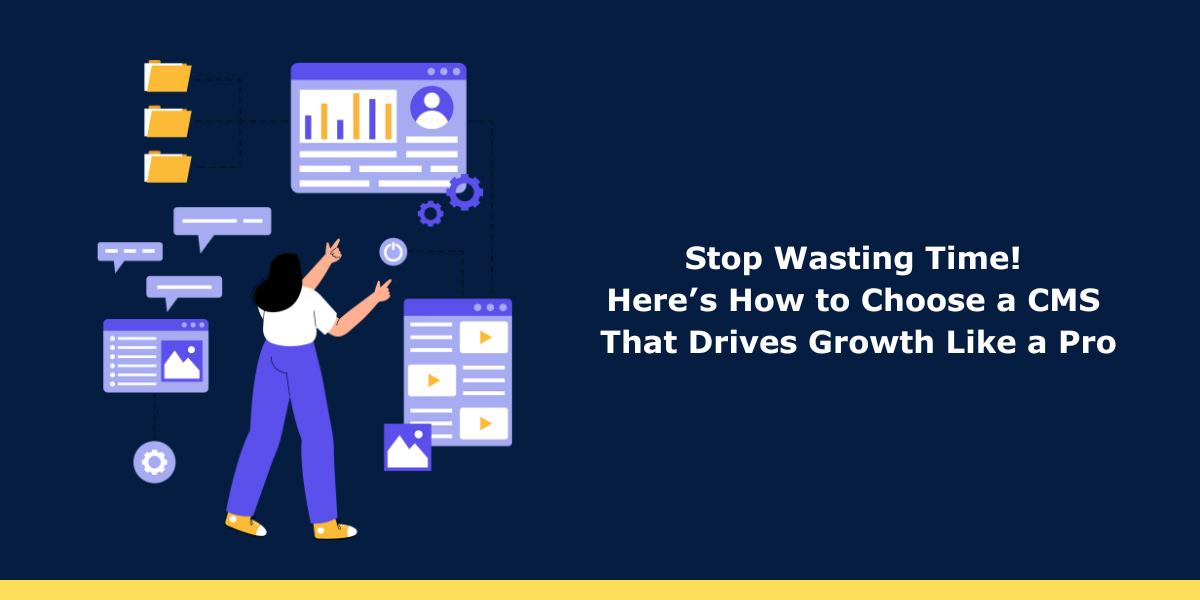
A CMS isn’t just about managing content—it’s the backbone of your digital experience. The right platform ensures superior SEO, personalized customer interactions, and scalable infrastructure. As we move into 2025, the complexity of the customer journey demands a top-tier martech stack to deliver seamless, data-driven experiences across every channel.
At the heart of this stack lies the CMS. It must tackle key challenges businesses face today, including:
- Gaining visibility in multimodal search.
- Establishing a presence in large language models (LLMs).
- Managing total cost of ownership.
- Leveraging AI opportunities.
Why a CMS Is the Cornerstone of Your Digital Strategy
A CMS is essential for creating personalized experiences and connecting touchpoints throughout the customer journey. As Forrester puts it, it “enables organizations to collaboratively manage the creation, aggregation, orchestration, and delivery of content to omnichannel touchpoints.”
The ideal CMS manages discovery, experience, engagement, and conversions effortlessly, ensuring your digital presence is optimized for AI-driven search advancements. It should also automate the fixing of website health issues, reducing the ongoing burden of technical SEO tasks.
Let’s break down the four pivotal stages of the marketing journey to consider when selecting or upgrading your CMS:
1. Discovery: Maximizing Content Visibility
The first challenge businesses face is content discovery and SERP saturation. With content dispersed across multiple platforms, maintaining consistent visibility can be tough. Many brands fall back on paid ads to compensate for poor organic discovery, even though consumers trust organic results more.
Your CMS should support content discovery by:
- Efficiently managing crawl budgets to ensure all high-quality content is indexed, crawled, and rendered.
- Simplifying schema updates based on content architecture.
- Automating key SEO tasks such as redirects, URL updates, sitemaps, breadcrumbs, and page speed optimizations.
- Supporting protocols like IndexNow to notify search engines of content changes.
Prioritizing these features is critical for brands aiming to enhance their search presence. With search becoming multimodal (text, images, videos, and audio), centralizing, optimizing, and distributing your assets across all channels is key.
2. Experience: Optimizing User Interactions
Once content is discovered, the next step is ensuring an exceptional user experience. Personalization and A/B testing should be integral to your strategy, not afterthoughts.
A CMS should offer easy-to-deploy solutions, backed by frameworks that improve user experience and drive conversions. Given the growing complexity of customer journeys—spanning images, videos, social platforms, text, and voice—an effective CMS must:
- Automate personalized workflows for different audiences.
- Establish a centralized information hub with a flexible data layer.
- Automate content rendering and publishing to meet specific channel and audience needs.
3. Conversion: Turning Traffic into Revenue
Once discovery and experience are optimized, the next step is conversion. Your CMS should help you:
- Optimize landing pages for better engagement.
- Implement conversion optimizations and A/B testing.
- Use limited-time offers, coupons, and other tactics to encourage purchases.
- Provide industry-specific widgets (e.g., online travel agencies, hospitality apps) to increase conversions.
For consistent execution across all channels, your CMS must do more than manage content—it must ensure scalability and uniformity across your entire digital ecosystem.
4. Performance: Real-Time Analytics and Infrastructure
A CMS is not only about managing content—it’s about performance. Integrating site and campaign performance analytics into your CMS provides real-time insights across all channels.
Key considerations include:
- Secure cloud hosting with micro-container architecture for high availability and disaster recovery.
- Multi-layered security features such as firewalls, intrusion detection, and DDoS protection.
- Compliance with regulations like GDPR, CCPA, and ADA for a trustworthy user experience.
- Built-in AI to automate content creation, migrations, and technical SEO fixes.
AI workflows within your CMS can drastically improve user experience, boost conversions, and ensure fast query resolution. The right CMS can even integrate with AI agents to provide content across various platforms, enhancing the relevance and speed of customer interactions.
Total Cost of Ownership: Maximizing Efficiency and Value
When evaluating a CMS, it’s crucial to focus on tools that deliver a seamless customer experience. A good CMS connects workflows across the customer journey, reducing the total cost of ownership by minimizing manual intervention and offering automation.
Your CMS should be designed to scale, with features like editable pages, reusable components, templates, built-in analytics, and AI-powered automation. Developer support and comprehensive documentation are equally important for faster implementation and long-term growth.
Optimize Your Digital Presence by Choosing the Right CMS
A CMS that delivers a streamlined, data-driven approach can be a game-changing thing for your digital strategy. By ensuring ease of use, advanced personalization, and robust performance features, the right platform will empower your brand to drive growth, improve customer engagement, and maximize conversions—all while keeping costs manageable.
Make the right choice today, and set your business up for success tomorrow.
If you’re still feeling overwhelmed or unsure where to start, explore our monthly SEO packages and let the experts handle it for you!

